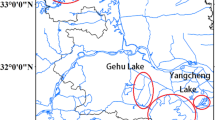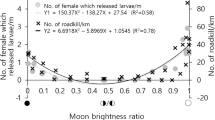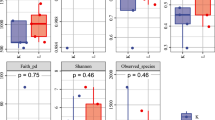Abstract
IN the “Kwoh-Wu,” or “Good Words from the States,” attributed to Tso Kiu-Ming (6th century B.C.), a king of Yueh (now the province of Cheh-Kiang) is said to have been advised by his counsellor to postpone his warlike preparation with “good words,” in which the officer adverts to the “Rice-Crab (Tau-Hiai) that spared for man not a seed [of rice] in late years.” A Japanese naturalist, Aoki Kon-yō, quoting a Chinese work, “Ping-Kiang Ki-Sze,” speaks of a crab-devastation which took place in the Wu District (now Kiang-Su) in 1297 A.D., “when all plains were full of crabs, wasting all crops of rice.” (“Kon-yō Manro Ku,” written 1763, ed. 1891, p. 164.)
This is a preview of subscription content, access via your institution
Access options
Subscribe to this journal
Receive 51 print issues and online access
$199.00 per year
only $3.90 per issue
Buy this article
- Purchase on SpringerLink
- Instant access to full article PDF
Prices may be subject to local taxes which are calculated during checkout
Similar content being viewed by others
Author information
Authors and Affiliations
Rights and permissions
About this article
Cite this article
MINAKATA, K. Crab Ravages in China. Nature 61, 491 (1900). https://doi.org/10.1038/061491a0
Issue date:
DOI: https://doi.org/10.1038/061491a0



